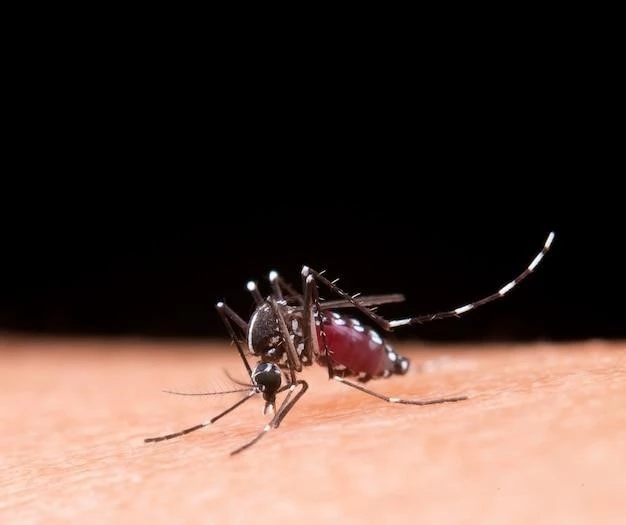Symptoms of Chagas Disease
Acute Phase Symptoms
In the acute phase of Chagas disease, individuals may experience fever, fatigue, body aches, rash, swelling at the site of infection, and in some cases, swelling of the eyelids. Additionally, individuals may exhibit symptoms such as headache, loss of appetite, nausea, diarrhea, and vomiting. It is essential to seek medical attention promptly if experiencing these symptoms, as early detection and treatment are crucial in managing the disease.
Chronic Phase Symptoms
In the chronic phase of Chagas disease, individuals may develop serious complications affecting the heart and digestive system. Symptoms may include irregular heartbeats, heart failure, difficulty swallowing, abdominal pain, constipation, and in severe cases, megaesophagus or megacolon. It is crucial for individuals with Chagas disease to undergo regular medical monitoring and follow-up to manage and address these chronic complications effectively.
Treatment Options for Chagas Disease
Medications
Medications for Chagas disease aim to kill the parasite, reduce symptoms, and prevent disease progression. Commonly used drugs include benznidazole and nifurtimox. These medications are most effective when administered during the acute phase but may also benefit some individuals in the chronic phase. It is crucial for healthcare providers to assess each case individually to determine the most suitable treatment approach based on the patient’s health status and stage of the disease.
Surgery
In some cases of Chagas disease, surgery may be necessary to manage complications such as enlarged heart (cardiomegaly) or digestive issues. Surgical interventions like pacemaker implantation for heart rhythm abnormalities or esophageal surgeries to address swallowing difficulties may be recommended. Surgical procedures are typically reserved for severe cases and are accompanied by careful pre-operative evaluation and post-operative care to ensure the best possible outcomes for the patient’s health.
Prevention Methods for Chagas Disease
Vector Control
Vector control strategies play a vital role in preventing Chagas disease by targeting the triatomine bugs that transmit the parasite. Measures include improving housing conditions, using insecticides, sealing cracks in walls, and using bed nets. Additionally, proper waste management and animal control help reduce bug populations. Public health efforts focus on educating communities at risk to implement these control measures effectively and minimize the risk of transmission.
Blood Screening
Blood screening is a critical preventive measure for Chagas disease transmission through blood transfusions and organ transplants. Screening tests identify individuals with the infection, allowing for appropriate intervention. Healthcare facilities must adhere to screening protocols to screen donors, recipients, and pregnant women in endemic regions. By implementing rigorous blood screening measures, the risk of Chagas disease transmission through blood-related routes can be significantly reduced, safeguarding the health of recipients and the general population.
Chagas Disease in Children
Pediatric Symptoms
Chagas disease symptoms in children may vary and can include fever, fatigue, rash, and swollen glands. In severe cases, children may experience cardiac complications or enlargement of the esophagus or colon. Early detection is crucial to prevent long-term health issues. Pediatricians should consider Chagas disease in endemic regions when assessing children with relevant symptoms and provide prompt diagnosis and appropriate treatment to mitigate the impact of the disease.
Treatment Approaches for Children
When treating Chagas disease in children, healthcare providers may use medications such as benznidazole or nifurtimox to target the parasite. Early diagnosis and treatment are crucial to prevent disease progression and mitigate long-term complications. Additionally, supportive care to manage symptoms and regular monitoring for potential cardiac or digestive issues are essential components of the comprehensive care approach for children with Chagas disease.
Chronic Complications of Chagas Disease
Heart Complications
Chronic Chagas disease can lead to severe heart complications, including myocarditis, arrhythmias, heart failure, and dilated cardiomyopathy. These conditions can significantly impact the quality of life and may require interventions such as medications, pacemakers, or heart surgeries. Regular cardiac monitoring is essential for early detection and management of these complications. Patients with Chagas disease should receive specialized care from healthcare providers experienced in managing cardiac conditions associated with the disease.
Digestive Complications
Chronic Chagas disease can result in digestive complications such as megaesophagus and megacolon. These conditions can cause difficulty swallowing, regurgitation, and severe constipation. Management of digestive complications may involve dietary modifications, medications to improve gastrointestinal motility, and in some cases, surgical interventions to address anatomical abnormalities. Patients with Chagas disease experiencing digestive issues should receive comprehensive care from healthcare providers specializing in gastroenterology to manage and improve their digestive health.
Diagnosis of Chagas Disease
Serologic Testing
Serologic testing is a common method used for diagnosing Chagas disease by detecting antibodies against the parasite Trypanosoma cruzi in the blood. Tests such as enzyme-linked immunosorbent assays (ELISAs) and indirect immunofluorescence assays (IFAs) are frequently employed for screening and confirmation. Results are interpreted based on established criteria, considering the patient’s clinical history and exposure risk. Serologic testing plays a crucial role in the early detection and diagnosis of Chagas disease to initiate timely management strategies.
Molecular Diagnosis
Molecular diagnosis of Chagas disease involves detecting the genetic material of the parasite in blood samples using polymerase chain reaction (PCR) assays. This method allows for accurate identification of Trypanosoma cruzi DNA, particularly in cases with low parasite levels. Molecular testing complements serologic assays, providing a confirmatory diagnosis and aiding in monitoring treatment efficacy. Healthcare providers utilize molecular techniques to enhance diagnostic precision and ensure appropriate management of patients with Chagas disease.

Chagas Disease Transmission
Triatomine Bug Transmission
Chagas disease is primarily transmitted to humans by infected triatomine bugs known as ″kissing bugs.″ These insects feed on blood and pass the parasite to humans through their feces. Infection can occur when the feces are rubbed into mucous membranes or broken skin. Preventive measures include insecticide spraying, improving housing conditions, using bed nets, and sealing cracks to reduce contact with the bugs. Public health campaigns raise awareness to minimize the risk of triatomine bug transmission.
Mother-to-Child Transmission
Chagas disease can be transmitted from an infected mother to her baby during pregnancy or childbirth. This vertical transmission poses a risk to infants, leading to congenital Chagas disease. Prenatal screening and early detection are key to identifying at-risk mothers and providing timely interventions to prevent transmission to the newborn. Healthcare providers emphasize the importance of screening pregnant women in endemic areas to reduce the incidence of mother-to-child transmission and safeguard the health of infants.
Research Updates on Chagas Disease
Vaccine Development
Researchers are actively pursuing the development of a vaccine against Chagas disease to prevent infection and transmission. Vaccine candidates aim to stimulate the immune system to generate protective responses against Trypanosoma cruzi, the parasite causing Chagas disease. Clinical trials are underway to assess the safety and efficacy of potential vaccines. Advances in vaccine development hold promise for controlling the spread of Chagas disease and reducing its impact on public health globally.
Drug Trials and Therapeutic Advances
Ongoing drug trials and therapeutic advances are contributing to new treatment options for Chagas disease. Researchers are exploring novel medications and treatment strategies to improve efficacy, reduce side effects, and offer more accessible therapies. Clinical studies evaluate the safety and effectiveness of these interventions in both acute and chronic phases of the disease. The progress in drug development and therapeutic approaches brings hope for enhanced Chagas disease management and better outcomes for affected individuals.
